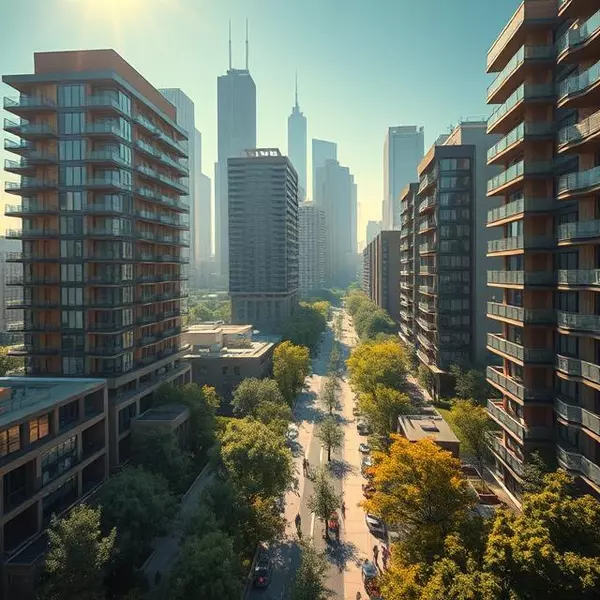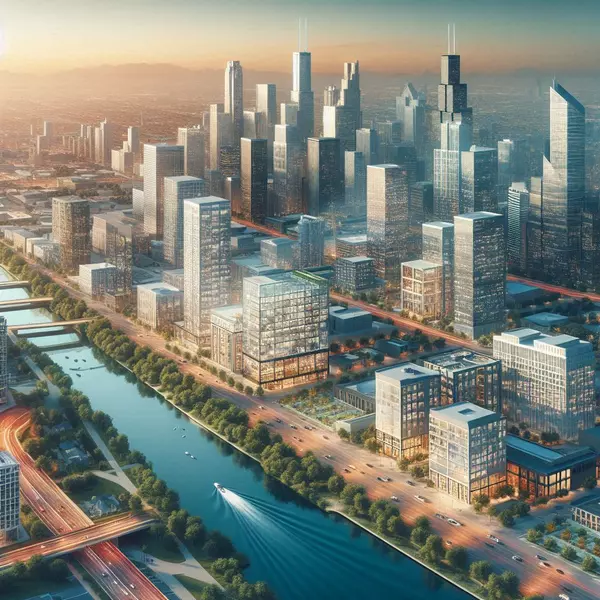Chicago Commercial Real Estate Market situation

The Chicago commercial real estate market has long been a focal point for investors, developers, and businesses alike. Known for its diverse economy and vibrant urban landscape, Chicago presents numerous opportunities in various sectors of commercial real estate. As we navigate through 2023, it is essential to examine the current state of this market, highlighting key trends, challenges, and opportunities.
One of the most significant aspects of the Chicago commercial real estate landscape is its diversity. The city boasts a mix of property types including office spaces, retail centers, industrial warehouses, and multifamily units. Each sector has its unique dynamics influenced by local economic conditions and consumer behavior. For instance, while the office market has faced challenges due to remote work trends accelerated by the pandemic, the industrial sector has seen robust growth driven by e-commerce demands.
In recent months, the Chicago commercial real estate market has shown signs of resilience. According to recent reports from leading real estate firms and local authorities, vacancy rates in certain sectors are stabilizing. The office market has begun to adapt with flexible leasing options and increased demand for high-quality spaces that prioritize employee wellness and collaboration. Landlords are investing in upgrades to amenities and technology to attract tenants who are re-evaluating their workspace needs post-pandemic.
The retail sector in Chicago is also undergoing a transformation. While traditional brick-and-mortar stores have struggled with competition from online retailers, there has been a notable shift towards experiential retail. Businesses that offer unique experiences or services are thriving in urban settings. The resurgence of foot traffic in neighborhoods like Wicker Park and Lincoln Park indicates that consumers are returning to physical stores, albeit with different expectations than before.
The industrial sector remains one of the brightest spots in Chicago's commercial real estate market. With its strategic location as a transportation hub—featuring major highways, railroads, and proximity to O'Hare International Airport—the demand for logistics and distribution centers continues to grow. Developers are responding by constructing modern facilities that cater to e-commerce companies looking for efficient supply chain solutions.
As we look at investment trends within the Chicago commercial real estate market, institutional investors have increasingly turned their attention to multifamily properties. The demand for rental housing remains strong due to population growth in urban areas and a shift towards renting rather than homeownership among younger demographics. This trend is further fueled by rising interest rates making mortgages less accessible for many potential homebuyers.
Sustainability is another critical factor shaping the future of commercial real estate in Chicago. Investors and developers are prioritizing green building practices as environmental consciousness grows among consumers and tenants alike. Properties that incorporate sustainable features not only appeal to eco-minded tenants but often benefit from lower operating costs over time.
However, challenges remain on the horizon for the Chicago commercial real estate market. Inflationary pressures have led to increased construction costs which could impact new developments and renovations. Additionally, ongoing uncertainty regarding economic conditions may cause caution among investors who are weighing their options carefully.
For those looking to stay updated on the latest developments in Chicago's commercial real estate market, numerous resources provide valuable insights into current trends and forecasts. Local real estate associations publish regular reports detailing vacancy rates, rental prices, sales activity, and other key metrics that can help stakeholders make informed decisions.
Additionally, industry conferences and networking events offer opportunities for professionals to connect with peers while discussing emerging trends within the marketplace. Staying informed through these channels can be crucial for anyone involved in commercial real estate in Chicago.
In conclusion, while there are hurdles ahead for the Chicago commercial real estate market—such as adapting to changing consumer preferences and economic uncertainties—the overall outlook remains positive across several sectors. With continued investment in infrastructure improvements and innovative property developments tailored to modern needs, Chicago is poised to maintain its status as a leading destination for commercial real estate investment.
Whether you’re an investor seeking opportunities or a business looking for space, understanding the nuances of this dynamic market will be essential as we move forward into 2024 and beyond. Keeping abreast of updates within the industry will empower stakeholders to navigate this ever-evolving landscape effectively while capitalizing on emerging trends that shape tomorrow's commercial real estate environment in Chicago.
Categories
Recent Posts










